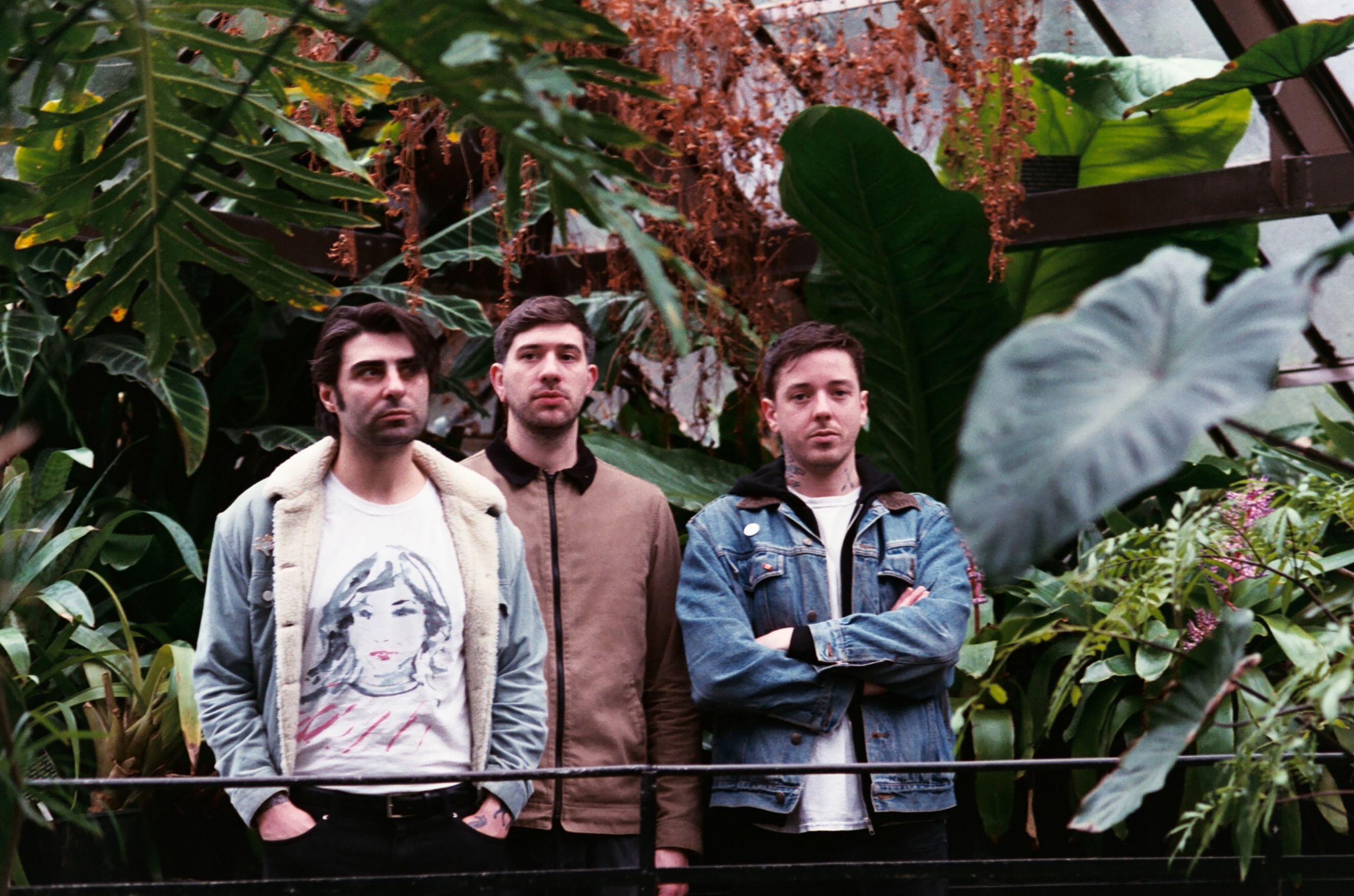There’s a good chance that if you listened to any of PAWS’ first three albums, you might not recognize them on their new one, Your Church on My Bonfire.
The Scottish trio emerged at the beginning of this decade with an album called Cokefloat! Its cover art was a silly illustration of a girl in a tie-dye shirt with spirals for eyes, and the songs paired well with the coastal fuzz-rock movement that was going down across the pond—think Surfer Blood, Cloud Nothings, Burger Records, or their UK contemporaries Nai Harvest’s Hairball.
That’s not to say PAWS were making jovial music to soundtrack parties and skate seshes. The intro track on Cokefloat!, “Catherine 1956,” is about the death of frontman Phillip Taylor’s mother, and in it he bluntly proclaimed that he would carry out her wishes to leave his hometown and pursue happiness elsewhere.
2014’s Youth Culture Forever played along the same lines musically, except for its epic closer, “War Cry,” twelve minutes of mostly instrumental post-hardcore smattered with aggressive distortion and pounding drums. It was a bold note to close on, and one that signaled the band’s sonic vocabulary had expanded far beyond the boundaries of peppy, albeit cloudy, pop punk.
By that point, PAWS had toured with premiere indie-rock acts like The Breeders, Japandroids, and Bleached, and were gigging with other indie-adjacent notables like Ty Segall, Ariel Pink, and No Age. For 2016’s No Grace, however, they tapped Mark Hoppus as producer. On paper, it was sort of a bizarre choice, given the lines in the sand between Blink-182’s stadium-sized breed of saccharine pop punk and PAWS’ rough-and-tough indie inclinations. But in practice, it was an excellent fit.
“My first concert was Blink-182 in Glasgow at age fourteen,” Taylor tells me, “so when I found out Mark was a fan and wanted to work with us, there was a mutual respect for each other and a nice opportunity to make something together.”
“This time around I just felt more comfortable showing the softer side of myself. I feel like I’ve got nothing left to lose.” — Philip Taylor
Hoppus drew a grandiosity out of the three-piece that was absent in the garagey character of their earlier material, and it did a serious service to the band’s sharpened sense of dynamics. But for Your Church on My Bonfire, PAWS enlisted Andy Monaghan of the tender indie-folk band Frightened Rabbit. It seems like another puzzling choice, until the swirling reverb of opener “What We Want” gives way to Taylor’s tender croon. It’s a stinging ode to the passing of his father, a hardship that informed a good portion of this record’s bleak subject matter.
“This time around I just felt more comfortable showing the softer side of myself. I feel like I’ve got nothing left to lose,” Taylor says. He has a lot of difficulty speaking about the lyrical content of the album, given that the events he’s singing about are still quite fresh. Taylor finds that type of headspace, during which he wrote “What We Want,” ideal for songwriting—yet still extremely challenging.
“Difficult with regards to my emotional state; that song was written on the bus home from his funeral. Easy with regards to how quickly it all poured out in about thirty minutes,” Taylor clarifies.
The majority of the album has the electric quality of classic college rock and big-room post-punk, but it moves at a much slower pace than their previous material. According to drummer Josh Swinney, it’s a creative choice they’ve been eyeing for a while now, and this time it just felt right.
“This is the album we’ve been looking to make sonically since we started, but were perhaps too afraid, as we’ve always been considered a ‘lo-fi punk’ band.” —Josh Swinney
“This is the album we’ve been looking to make sonically since we started, but were perhaps too afraid, as we’ve always been considered a ‘lo-fi punk’ band,” Swinney explains. He emphasizes that it wasn’t the result of a sudden change in taste within the band—merely a different side of what PAWS have always considered themselves. “We are just as likely to be listening to Édith Piaf or Jacques Brel in the van as Minor Threat or Sonic Youth. If anything, it was simply two aspects of our interest that we drew on. Next album is going to be produced by Philip Glass.”
He’s joking (probably), but it’s not like PAWS don’t have ambition. The album’s closer is another twelve-minute tune titled “Not Goodbye (See You Later)” that thaws from an icy slow-burner into a simmering spoken-word section. Eventually, it all boils over into a surging climax that nods heavily to the 1998 song “New Birds” by their Glasgow forebearers Arab Strap. Up until that point, it’s the wordiest song on the album. But the intensity of its instrumental outro speaks more to the emotional state of the record than many of the lyrics themselves.
“Losing people you love is hard,” Taylor says. “Talking about it is just as hard.” FL









